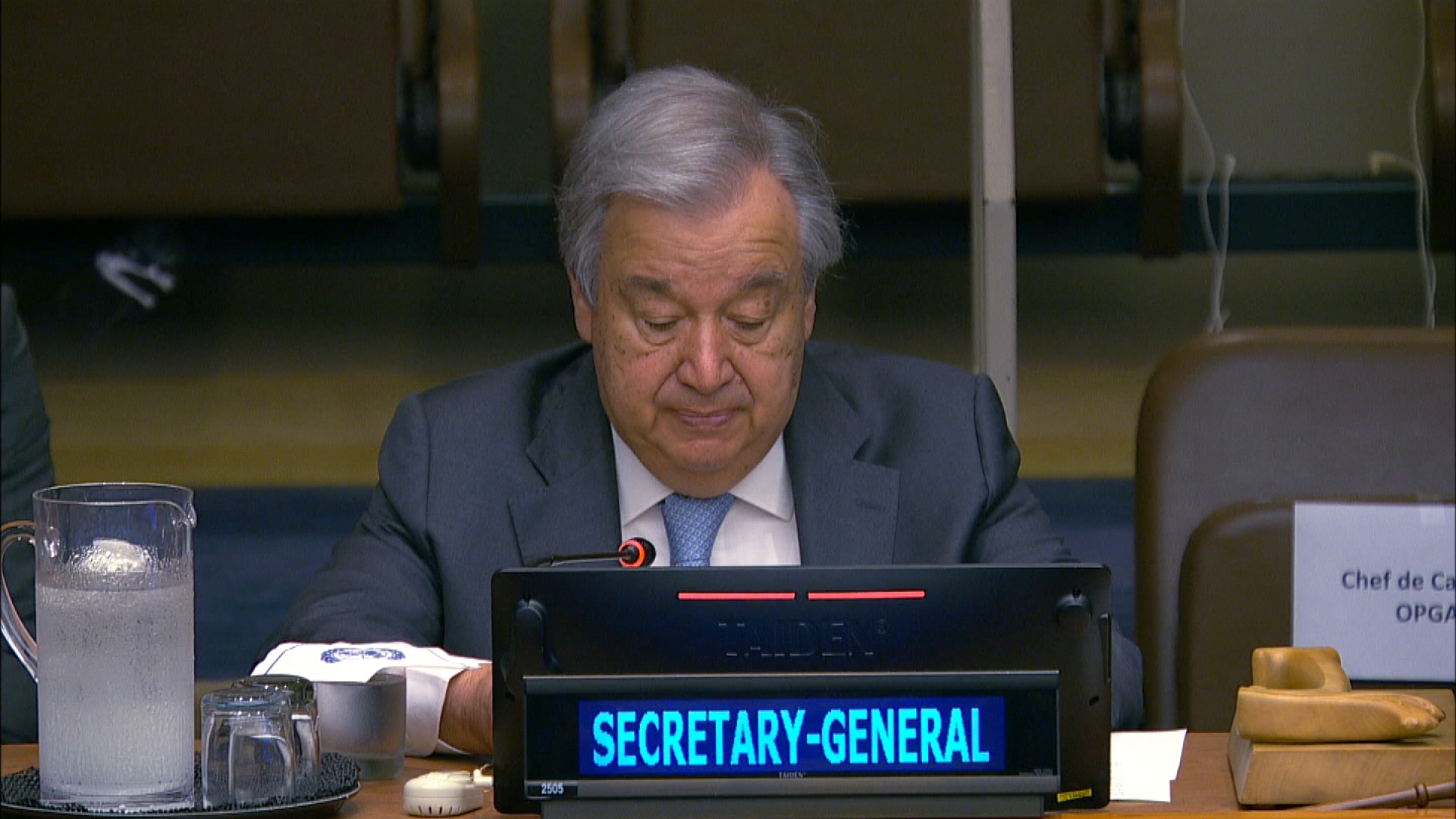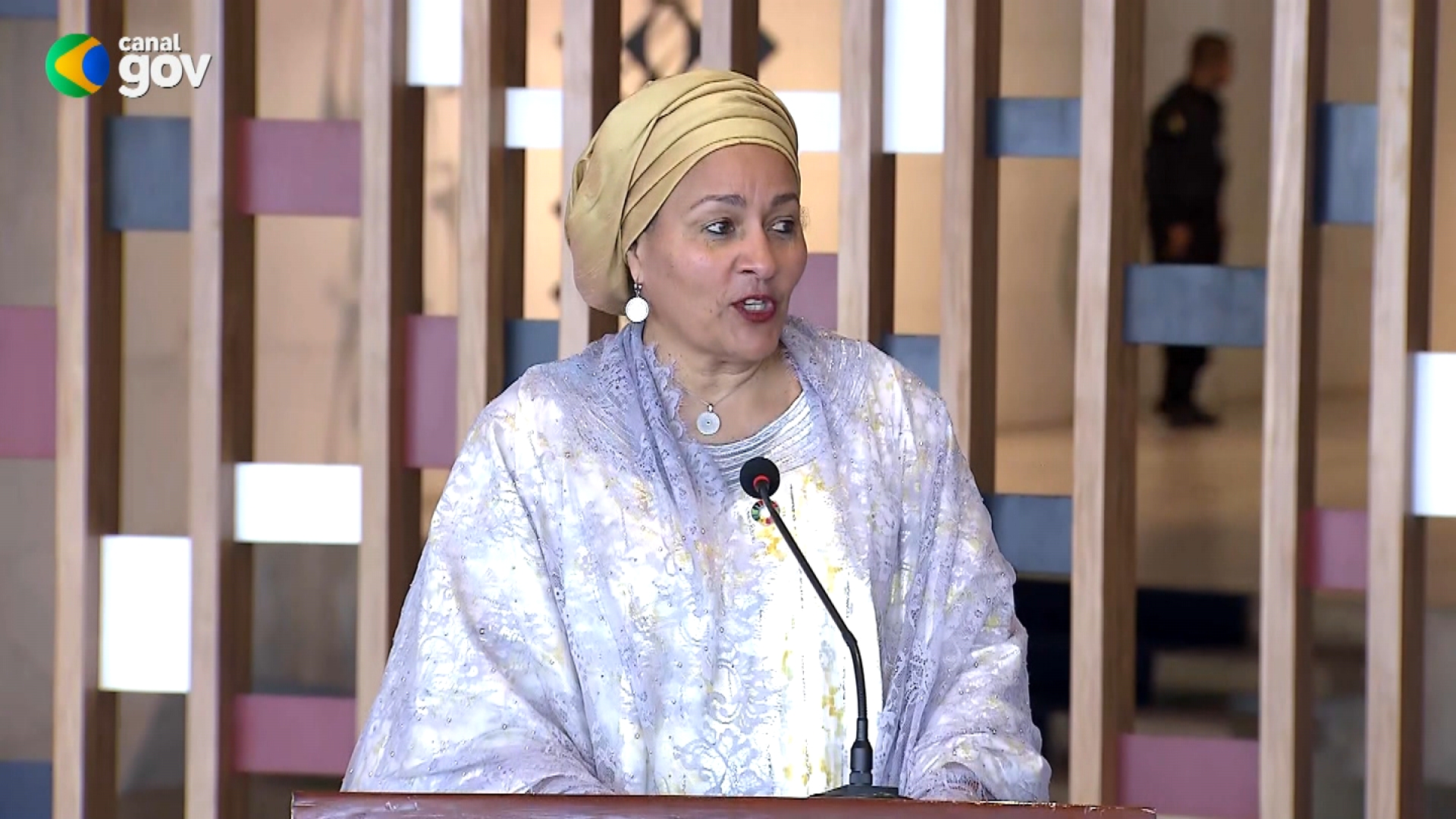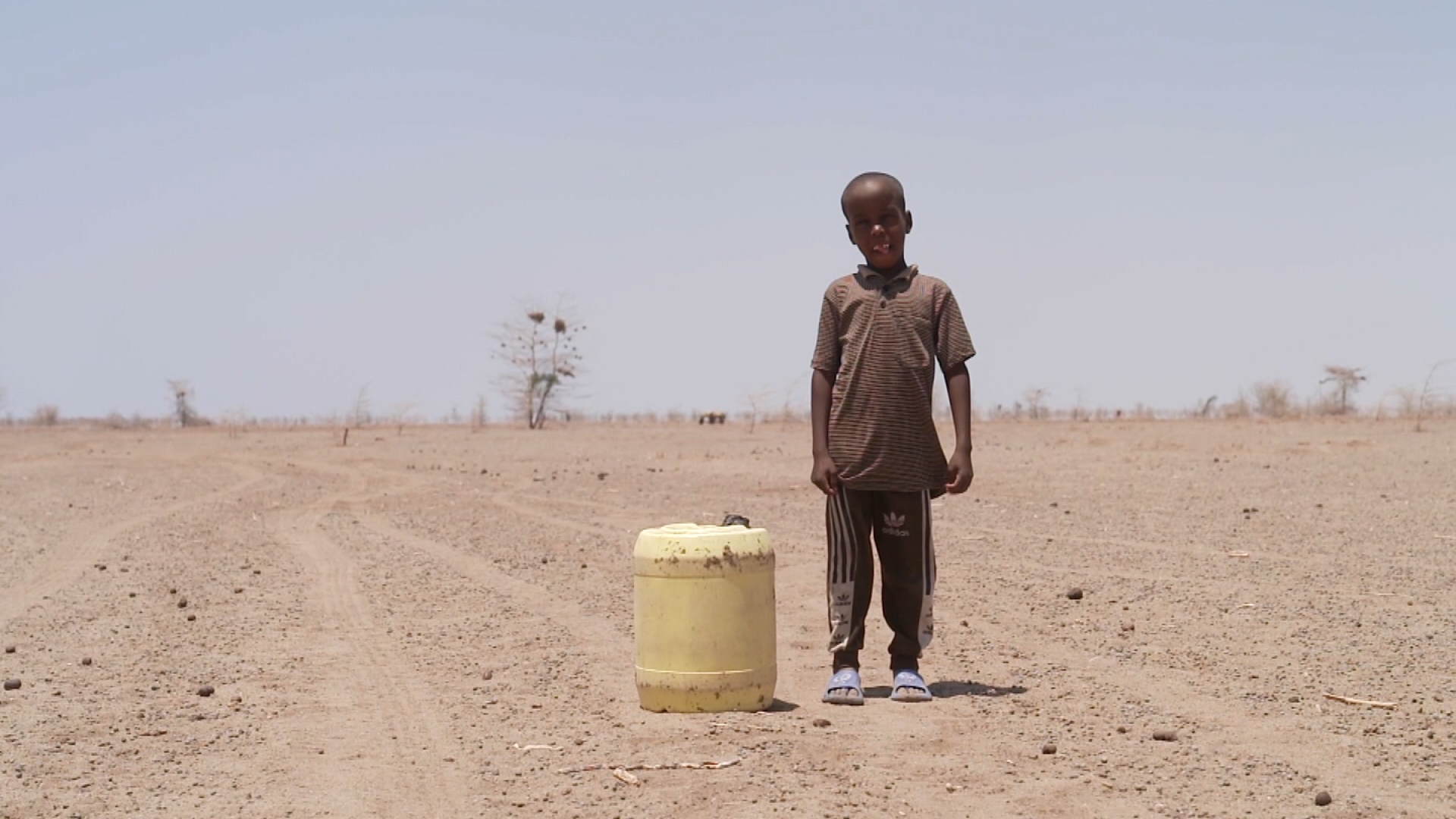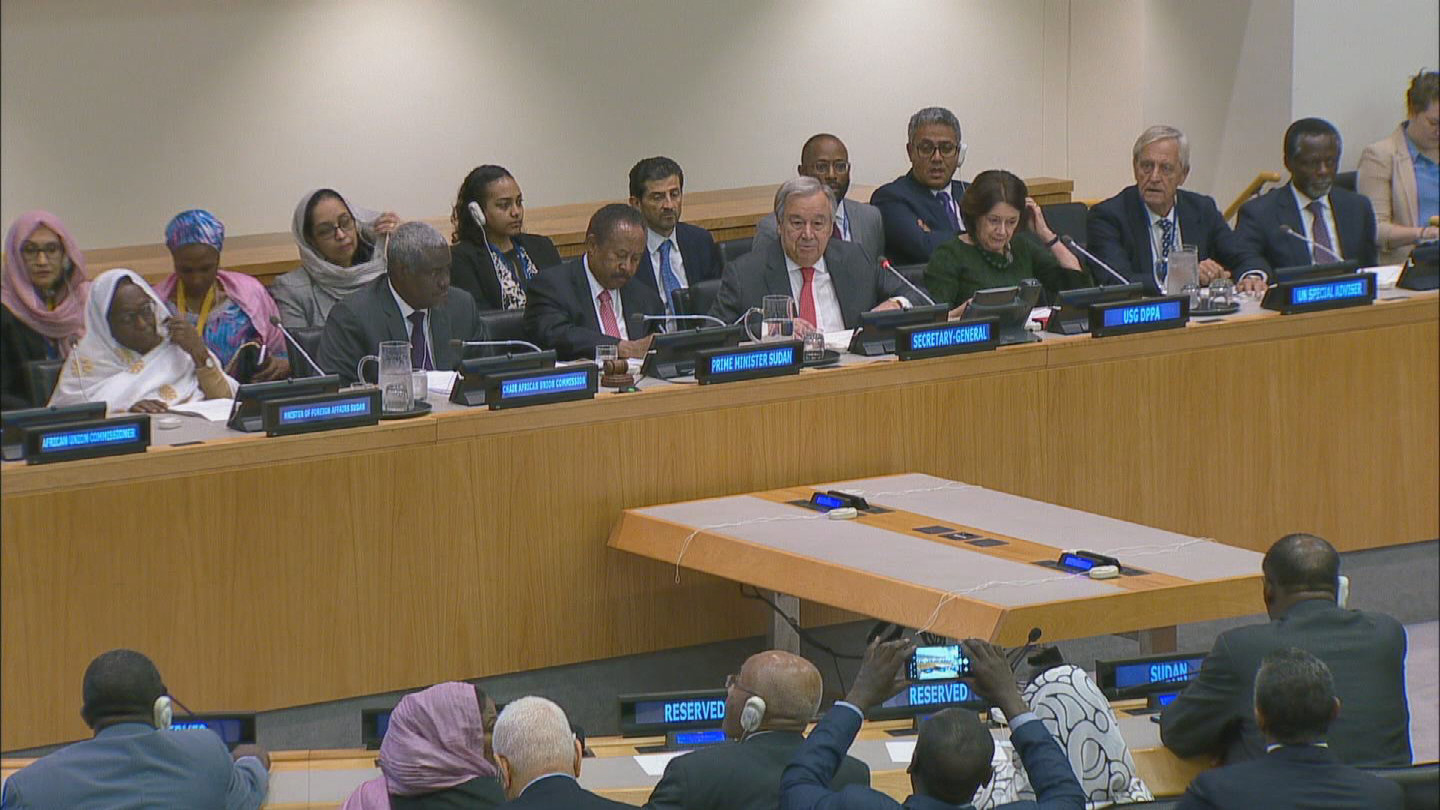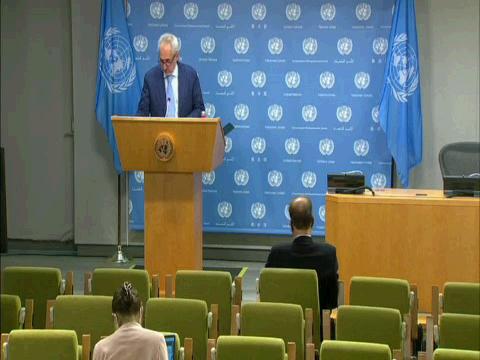UN / PORTUGAL CARNATION REVOLUTION EVENT
Said, “there is a very direct link between the fight for democracy in Portugal that led to 25 April, and the fight of the African freedom movements, which led to independence.” UN NEWS
STORY: UN / PORTUGAL CARNATION REVOLUTION EVENT
TRT: 03:36
SOURCE: UN NEWS
RESTRICTIONS: NONE
LANGUAGES: PORTUGUESE / NATS
DATELINE: 22 APRIL 2024, NEW YORK CITY
1. Various shots, Secretary-General António Guterres and Ambassadors speaking with UN News
2. SOUNDBITE (Portuguese) António Guterres, Secretary-General, United Nations:
“There is a very direct link between the fight for democracy in Portugal that led to 25 April, and the fight of the African freedom movements, which led to independence. The two things are interlinked.”
3. Med shot, Ambassadors
4. SOUNDBITE (Portuguese) António Guterres, Secretary-General, United Nations:
“Today, we think it's normal to live in a democracy, that it's normal to say what we think, that it's normal to organize ourselves as we see fit to defend our interests and we don't value the extraordinary struggle of the African liberation movements and the extraordinary courage of those in Portugal, first the military and then the people, who gathered massively in the streets, who freed us from dictatorship and freed us from colonial oppression.”
5. Wide shot, Guterres and Ambassadors speaking with UN News
6. SOUNDBITE (Portuguese) António Guterres, Secretary-General, United Nations:
“The idea that it was possible to maintain the colonial empire in the 20th century, as Salazar thought, was not only a profoundly unacceptable idea from a political and moral point of view, but it was also absurd because it was clear that a poor, small country like Portugal couldn't afford it. Today, we often don't realize that it was also the suffering of the Portuguese that led more than 1 million Portuguese to leave the country in the 1960s, many of them because they didn't want to do military service and many others because the country simply wasn't developing and wasn't creating the necessary conditions and opportunities. And so, it's clear that we're on the right side of history, liberating a country from dictatorship and we're on the right side of history, re-establishing justice in international relations after a colonial past that is unacceptable.”
7. Wide shot, Ambassadors speaking with UN News
8. SOUNDBITE (Portuguese) Francisco José da Cruz, Permanent Representative to the United Nations, Angola:
“After the revolution of 25 April and Independence, cooperative relations were established with reciprocal advantages for development, in our case, for the development of Angola. In this respect, we continue to cooperate with Portugal in various areas. And it's a relationship that strengthens over time, not only based on historical ties, but also on a vision of the future and what we can do to defend our interests in the international arena.”
9. Wide shot, Ambassadors speaking with UN News
10. SOUNDBITE (Portuguese) Sérgio França Danese, Permanent Representative to the United Nations, Brazil:
“For Brazil, April 25 had a big impact, because Portugal was a country very close to us. At that time, we were going through a very difficult phase in our own military regime. The Médici government had come to an end, which was a particularly harsh government, and so the idea of a slow and gradual opening began. And the Carnation Revolution certainly had the impact of showing that there was a way forward, that there was hope.”
11. Wide shot, Ambassadors speaking with UN News
Marking the 50th anniversary of the Carnation Revolution Secretary-General António Guterres
Said, “there is a very direct link between the fight for democracy in Portugal that led to 25 April, and the fight of the African freedom movements, which led to independence.”
UN News invited ambassadors from the diplomatic missions of Portuguese-speaking nations to a debate to mark the anniversary. Along with the Secretary-General they relived the historic moment, analysed its current implications, and discussed the changes in the political landscape over the last five decades.
Guterres said, “today, we think it's normal to live in a democracy, that it's normal to say what we think, that it's normal to organize ourselves as we see fit to defend our interests and we don't value the extraordinary struggle of the African liberation movements and the extraordinary courage of those in Portugal, first the military and then the people, who gathered massively in the streets, who freed us from dictatorship and freed us from colonial oppression.”
Guterres brings a unique perspective to this discussion, having been elected to the Portuguese Parliament in 1976 and subsequently served as Prime Minister of Portugal between 1995 and 2002.
The UN Chief regretted that the liberation movement in his country happened so late.
He said, “the idea that it was possible to maintain the colonial empire in the 20th century, as Salazar thought, was not only a profoundly unacceptable idea from a political and moral point of view, but it was also absurd because it was clear that a poor, small country like Portugal couldn't afford it. Today, we often don't realize that it was also the suffering of the Portuguese that led more than 1 million Portuguese to leave the country in the 1960s, many of them because they didn't want to do military service and many others because the country simply wasn't developing and wasn't creating the necessary conditions and opportunities. And so, it's clear that we're on the right side of history, liberating a country from dictatorship and we're on the right side of history, re-establishing justice in international relations after a colonial past that is unacceptable.”
He concluded his intervention by saying that he trusts that Portuguese-speaking countries may have a key role in establishing trust, development, and respect for human rights.
Six permanent representatives to the United Nations took part in a and agreed that, in addition to sharing a common language, they also share a sense of community that can serve as a bridge among them, connecting them across all five continents.
Angola’s Ambassador Francisco José da Cruz said, “after the revolution of 25 April and Independence, cooperative relations were established with reciprocal advantages for development, in our case, for the development of Angola. In this respect, we continue to cooperate with Portugal in various areas. And it's a relationship that strengthens over time, not only based on historical ties, but also on a vision of the future and what we can do to defend our interests in the international arena.”
For his part Brazilian Ambassador Brazil Sérgio França Danese said, “for Brazil, April 25 had a big impact, because Portugal was a country very close to us. At that time, we were going through a very difficult phase in our own military regime. The Médici government had come to an end, which was a particularly harsh government, and so the idea of a slow and gradual opening began. And the Carnation Revolution certainly had the impact of showing that there was a way forward, that there was hope.”
The debate organized by UN News, moderated by journalists Marta Moreira from Portugal and Felippe Coaglio from Brazil.





